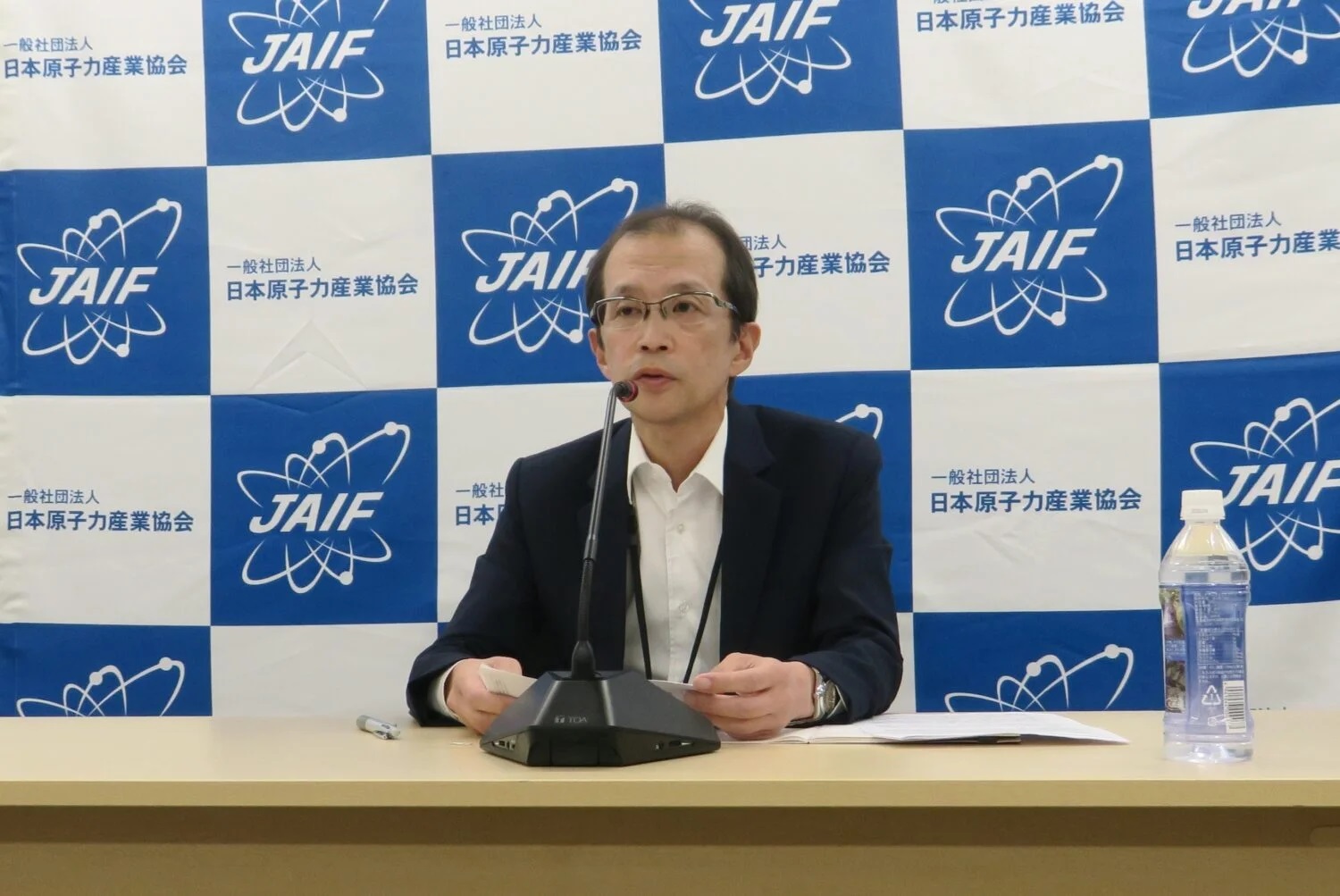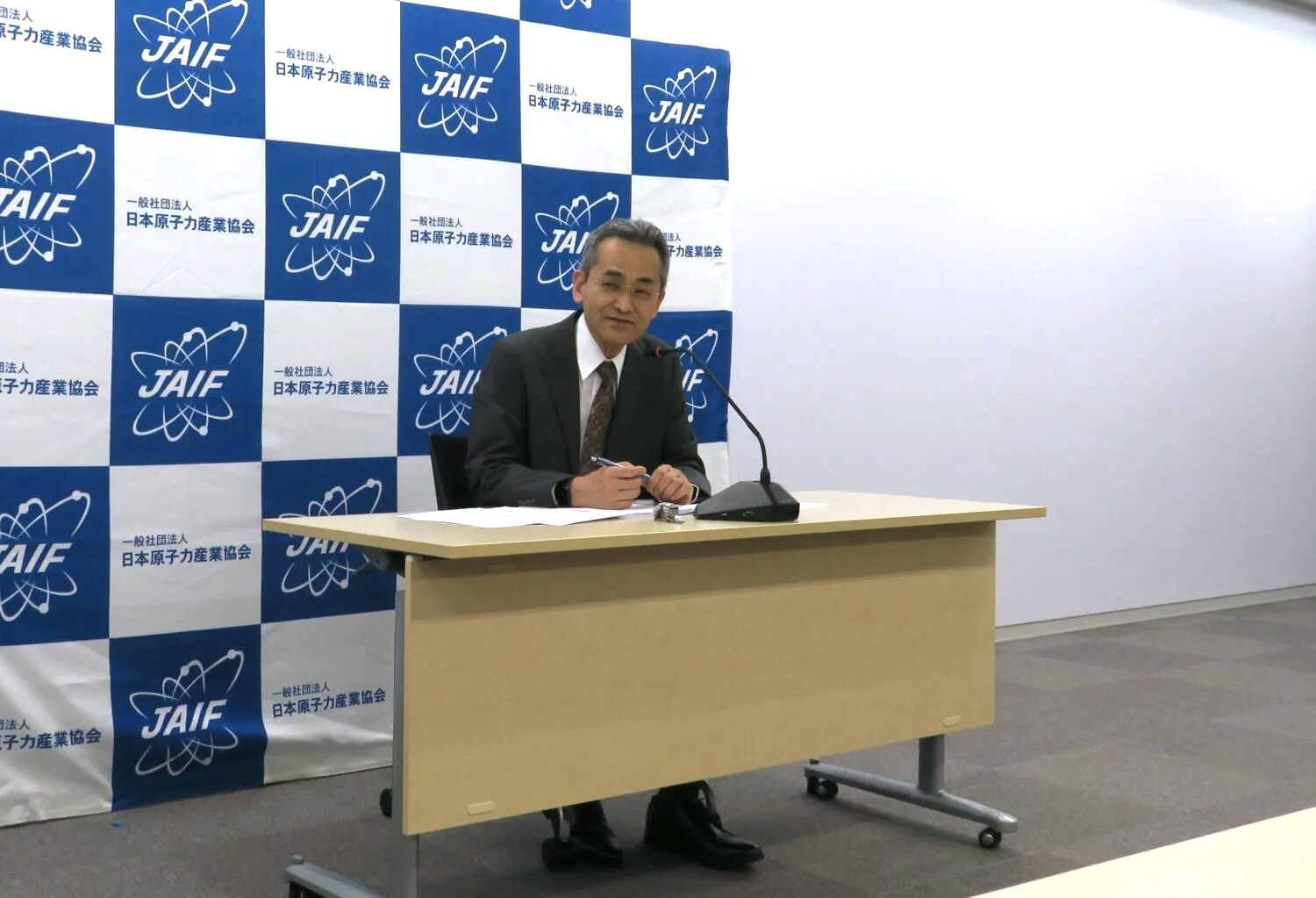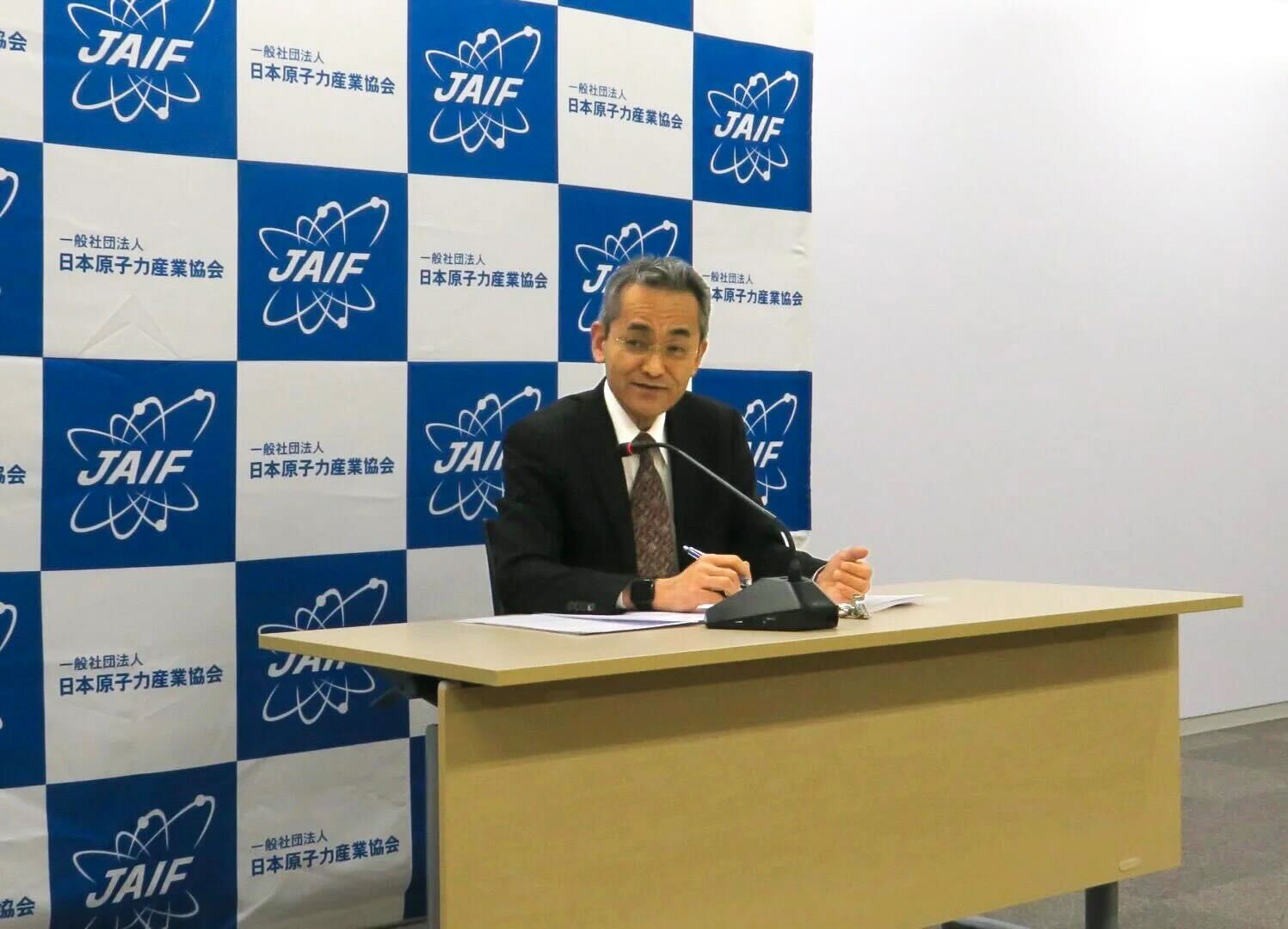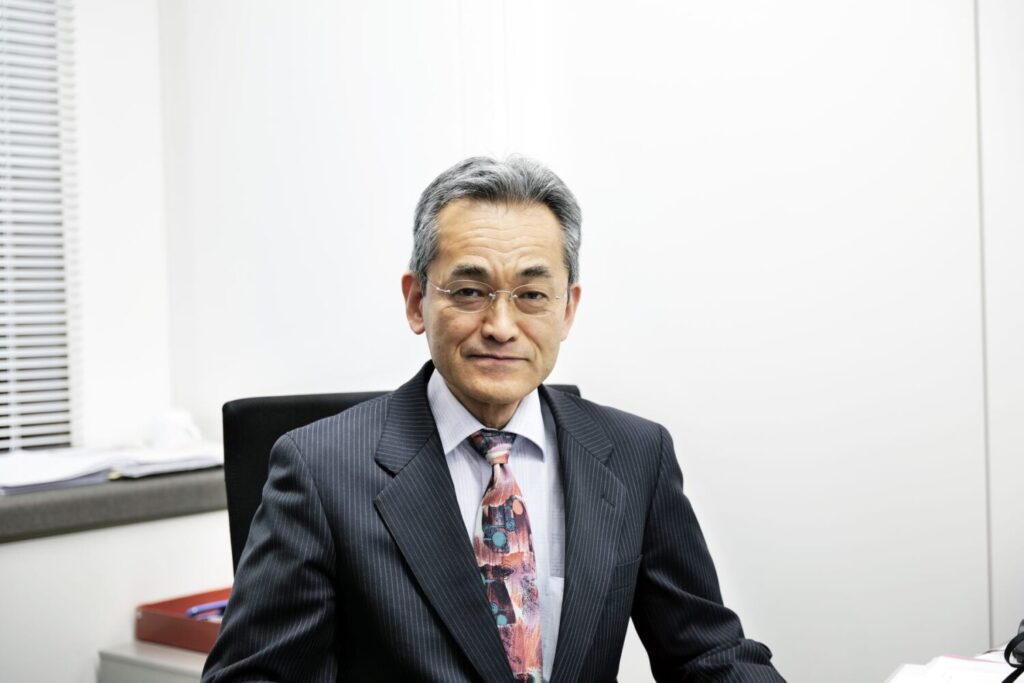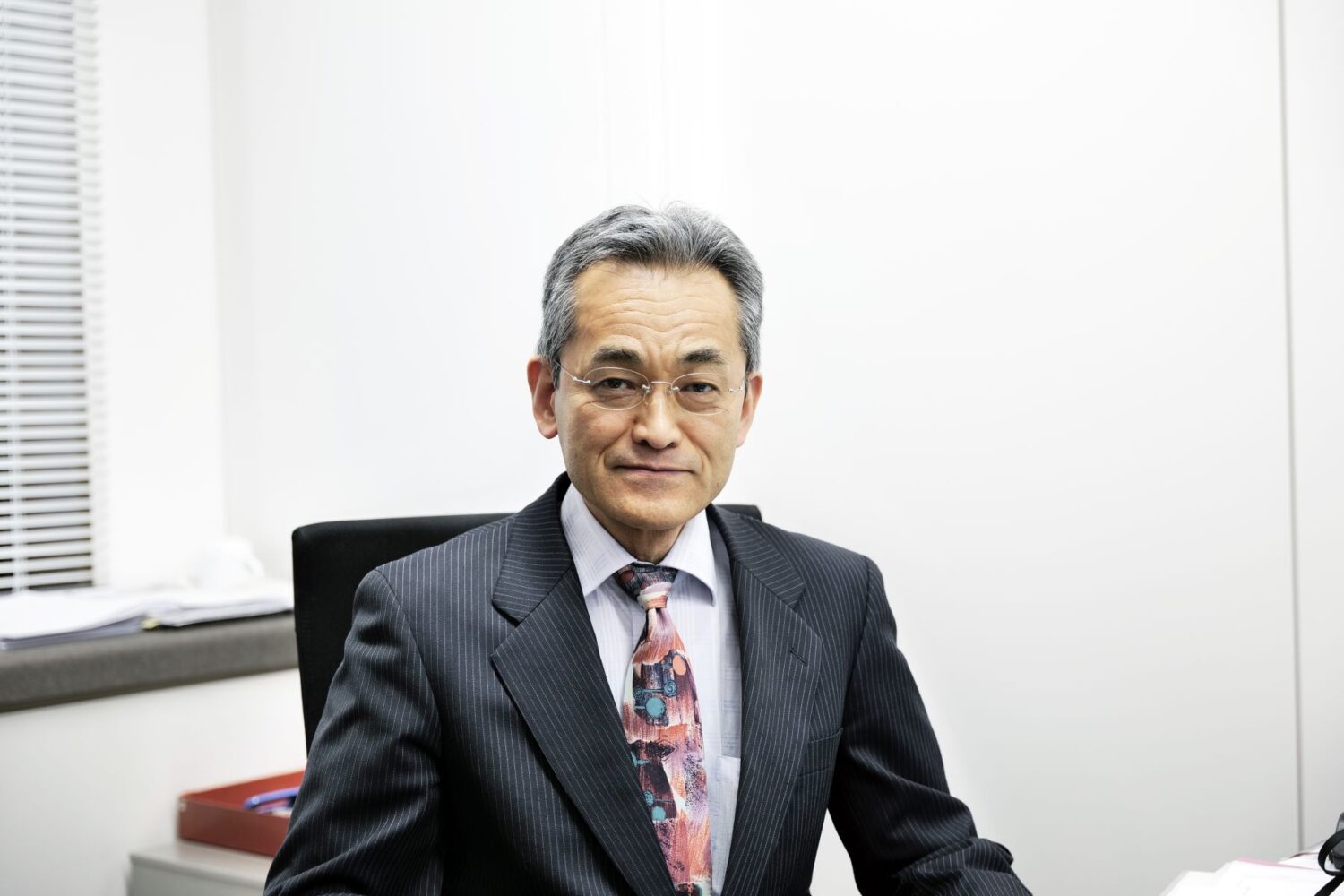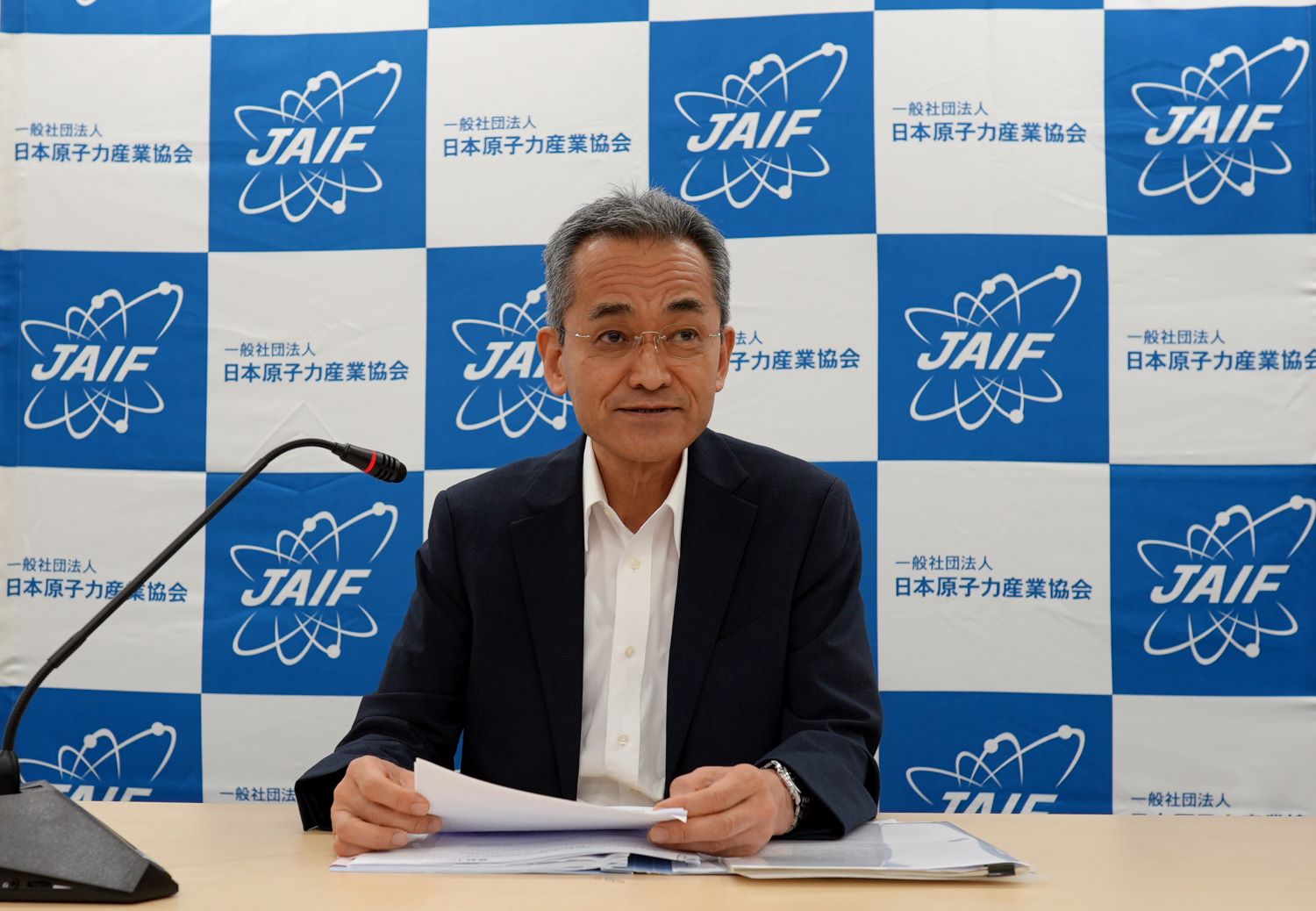In the Japanese national election held last December, the Liberal Democratic Party (LDP) and New Komeito Party together won an overwhelming majority of Lower House seats, giving them the foundation for a stable government for some time to come. I expect them to exercise strong political leadership in resolving various domestic and international issues to enable Japan to continue sustainable growth.
Energy issues are closely related to corporate activities and the daily lives of the people. In order to carry out the growth strategy representing the third “arrow” of “Abenomics,” the issues facing us should be resolved as quickly as possible.
An array of challenges lies ahead for nuclear power this year, too, including decommissioning work at the Fukushima Daiichi Nuclear Power Station (NPS) of the Tokyo Electric Power Co. (TEPCO), reconstruction work in Fukushima Prefecture, restarting the country’s nuclear power plants (NPPs), starting with the Sendai-1 and -2 NPPs, and determining a national energy mix toward COP21, to be held in France at the end of the year.
As the year begins, I want to talk about four areas of activity for the Japan Atomic Industrial Forum (JAIF).
The first is to support Fukushima Prefecture. Although the fourth anniversary of the disastrous March 11, 2011, earthquake is soon approaching, along with that of the accident at the Fukushima Daiichi NPS, many residents in the affected area are still living as evacuees.
Yet, we can recognize progress, such as the lifting of evacuation orders in some areas and traffic restrictions of Route 6. A plan to construct an interim storage facility for radioactive waste generated from decontamination work is also making steady progress. At the Fukushima Daiichi NPS, spent fuel at the Unit 4 pool has been fully transferred, and work is proceeding on the reactor’s decommissioning, including the treatment of contaminated water.
The national government and related parties must continue their support for those efforts, accompanied by steady progress in the decommissioning work, integrating knowledge, expertise and experience from around the world, so that evacuees may return to their homes and experience the reality of reconstruction of the area.
JAIF will convey the voices of the people of Fukushima broadly across society, and reflect their needs and wishes in its efforts to support them. We will also continue to stand closely with them, helping them in such matters as accurately understanding radiation, hoping thereby to reduce their anxiety and make it easier for them to return to their homes, letting them restore and rebuild their lives.
The second area of JAIF’s activities for the year is to promote understanding on nuclear power. In the new national strategic energy plan, nuclear power is positioned as an important base-load power source. At the same time, the plan talks about the minimizing of dependency on nuclear power as a future direction.
The size of the nuclear component in the energy plan will be determined carefully from the viewpoints of stable supply and global warming countermeasures, as well as reducing costs and ensuring the necessary technology and human resources to secure safety.
Meanwhile, those NPPs compatible with the new regulatory standards will be restarted, with the understanding of local communities. Procedures toward restarting the Sendai-1 and -2 NPPs are reaching a conclusion.
Nevertheless, as shown in opinion polls, a majority of the Japanese public is still rigid in its opposition to restarting NPPs, and people do not seem to sufficiently understand the need and importance of nuclear power in terms of energy policy.
Toward the COP21 meeting, to be held at the end of this year, it is necessary for the Japanese government to actively carry out discussions on the energy mix as quickly as possible, identify specific future measures for energy security, including the use of nuclear power, and present them to the public with conviction. The domestic nuclear industry will similarly have to explain the necessity of nuclear power publicly, on its own initiative.
JAIF will strive not only to develop and make proposals to authorities, but also to provide information to the public so that each individual can see the personal significance of energy issues, properly evaluate nuclear power, and appreciate the need to maintain it at a certain level. JAIF will do that in a manner that reaches all segments of society, particularly women, and the people of the next generation.
The third area that JAIF will concentrate on is contributing to the international community and supporting exports of Japanese nuclear technology. Even after the accident at the Fukushima Daiichi NPS, many countries around the world have worked to introduce or expand nuclear power from the viewpoints of stable energy supply, global warming measures, and stabilizing and reducing costs. Those countries have pinned high expectations on Japan’s technological strength. As the country where the Fukushima accident occurred, Japan is responsible for sharing the lessons learned from it and contributing to the improvement of safety at nuclear-related facilities around the world.
As one lesson learned from the Fukushima accident, developing NPPs with improved safety will be part of meeting those expectations. That effort will also help revitalize the stagnant domestic nuclear industry, contributing to the maintenance and improvement of nuclear technology, and supporting Japan’s national growth strategy.
Last year, Japan decided to join the Convention on Supplementary Compensation (CSC) for Nuclear Damage, which will contribute to establishing an international framework for nuclear damage compensation. The development of such an environment is essential for the globalization of the nuclear industry: the successful expansion overseas by domestic companies, and the participation by foreign companies in the Japanese market.
Through its international human networks and exchange opportunities, JAIF will provide information to other countries on Japan’s nuclear policy, aimed at a best mix of sources (to be decided), and efforts by the industry based on the Fukushima accident. It will thus make an international contribution, enhancing the presence of Japan’s nuclear industry overseas and supporting its international development.
The fourth and final area of JAIF’s 2015 activities is to ensure and develop human resources. Given the scant future prospects for nuclear power domestically since the Fukushima accident, the domestic nuclear industry is often viewed as a bleak world “without dreams.” Securing and fostering human resources thus continues to be difficult in this country. However, now that the national strategic energy plan has positioned nuclear power as an important base-load power source, it will be essential to secure a certain level of human resources for the safe and stable operation of the country’s NPPs.
In addition, it will be necessary to ensure technological capability and human resources to (1) properly operate the Rokkasho Reprocessing Plant, (2) decommission the Fukushima Daiichi NPS, (3) implement ordinary decommissioning of other NPPs, and (4) dispose of high-level radioactive waste.
Given those circumstances, the national government is carrying out discussions toward the issuance of a technology and human-resources roadmap showing how many researchers and engineers will be required, when they will be needed, and what kinds of expertise they should have, along with the measures necessary to ensure their availability.
Moreover, for the international development of the nuclear industry, including exporting plants, Japan needs to globalize (internationalize) its human resources, while developing them in counterpart countries.
JAIF, which is already committed to the globalization of a human-resources development network, will work to enhance and elevate Japan’s human- resources system to the point where it can serve as an international standard, while fully supporting the nation’s efforts to secure and foster human resources.
At the same time, JAIF will strive to encourage students — the leaders of the next generation — to view the nuclear industry and other energy industries as rich with career prospects and a wide range of R&D opportunities. In such ways, JAIF is investing all of its energy into ensuring and fostering the human resources that will support the future of Japan.




